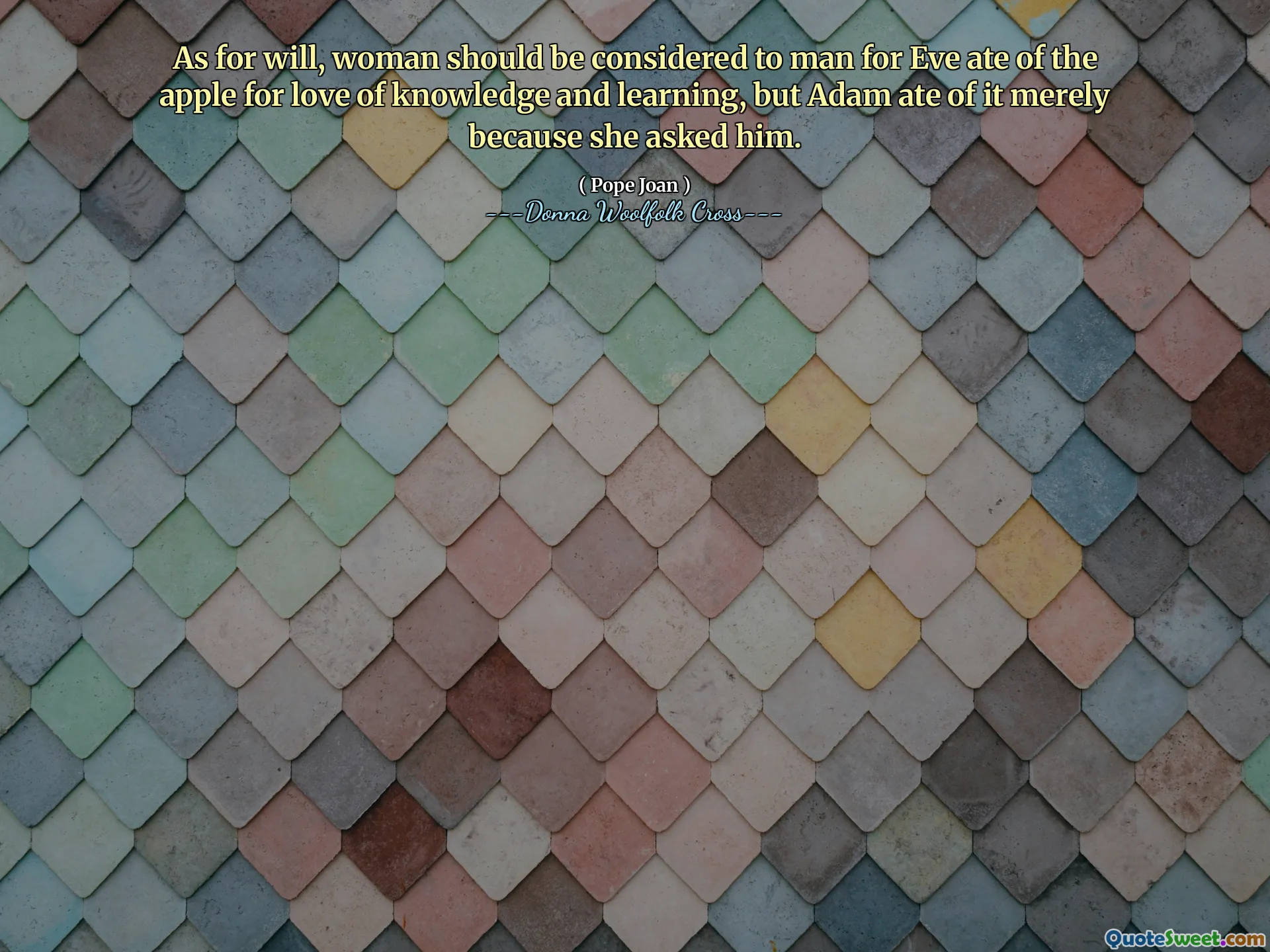
As for will, woman should be considered to man for Eve ate of the apple for love of knowledge and learning, but Adam ate of it merely because she asked him.
This quote from Donna Woolfolk Cross's "Pope Joan" offers a thought-provoking reflection on the dynamics of willpower and motivation between men and women, framed through the allegory of Adam and Eve. The idea that Eve's act of eating the apple was driven by a passionate desire for knowledge and learning foretells a more profound thirst for intellectual growth and autonomy. In contrast, Adam's decision is described as one rooted in compliance or simply acquiescence to Eve's insistence. This dichotomy highlights a broader commentary on the nature of agency: Eve actively pursues enlightenment out of love for knowledge, while Adam passively follows, suggesting differing motivations and strengths in human wills.
In a deeper sense, the quote challenges traditional interpretations of the biblical story by granting Eve a noble intention rather than casting her as a simple temptress or bearer of original sin. It reframes her action as a pioneering quest for wisdom, thereby elevating the role of women as seekers of truth and contributors to human advancement. The phrase "woman should be considered to man" invites readers to see women as equals, perhaps even as originators of willful and meaningful action compared to men who may rely more on relational influences.
This passage encourages reflection on how motivations can differ across individuals and genders, yet both contribute to the outcomes we face collectively. It also sparks discussion about how history, myth, and literature portray gender roles and attributes such as will, desire, and learning. Ultimately, it demands a reconsideration of assumptions about who leads and who follows in human endeavors—pointing to the vital importance of intrinsic passion over mere obligation.






